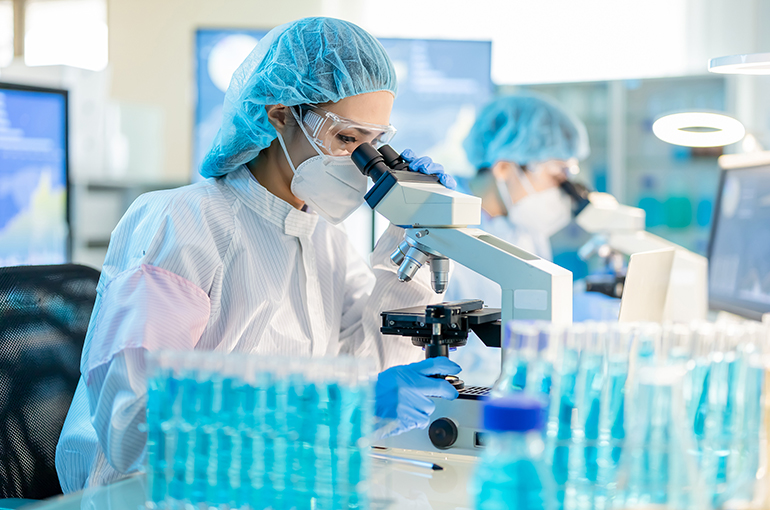 China Must Boost Drug Innovation Amid US Tariff Storm, Academic Says
China Must Boost Drug Innovation Amid US Tariff Storm, Academic Says(Yicai) April 18 -- China needs to step up its efforts in developing cutting-edge new drugs and ramp up domestic production of research equipment to safeguard its industrial supply chains as the US government’s new Reciprocal Tariffs cause havoc in global trade, a scholar from the Chinese Academy of Engineering said.
To take lab reagents as an example, China only relies on imports of reagents because importing them has been so easy, not because the country is unable to produce them, Ding Jian, who is also chairman of the Shanghai Pudong New Area Science and Technology Association, said at the Zhangjiang Sci-Tech Innovation Salon which kicked off yesterday.
Now that the US is introducing high tariffs, China should start building up a number of large-scale reagent manufacturers to become self-sufficient in the next three to five years, Ding said.
Thanks to major improvements in China’s drug innovation abilities over the past decade, the number of Class 1 drugs, or new medicines that do not have similar products approved anywhere in the world, that were given the greenlight last year soared to 37 from four in 2015.
And around a fifth of these were developed in Zhangjiang Science City, formerly known as Zhangjiang High-Tech Park, which is a biomedical industry cluster located in Shanghai’s Pudong New Area.
However, China still lags behind in terms of originality and new drug innovations, Ding said. In the past 10 years, the country only developed six first-in-class drugs, meaning that they are the first medicines of their kind to treat a specific disease, compared with 152 that were approved abroad.
This is because China still relies heavily on foreign research when it comes to discovering drug targets, mechanisms of action and personalized drug biomarkers, Ding said. Cutting-edge technologies such as Big Data and artificial intelligence-driven drug design were first developed abroad. High-end equipment, including gene sequencers and MRI machines, are also mostly imported, he added.
China needs to increase its support in these areas, Ding said. For example, platforms such as the Zhangjiang Sci-Tech Innovation Salon can host regular events to highlight the results of basic research. This will help pharmaceutical companies connect with authorities to help turn these discoveries into actual products. These events will also attract research talent from across China.
The Zhangjiang Sci-Tech Innovation Salon serves as a permanent high-end dialogue platform and holds regular activities including keynote speeches, roundtable discussions, and product roadshows that focus on cutting-edge science and key industries.
Editors: Dou Shicong, Kim Taylor